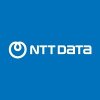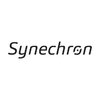
i
Nagarro
Filter interviews by
Nagarro Data Scientist Interview Questions, Process, and Tips for Experienced
Nagarro Data Scientist Interview Experiences for Experienced
2 interviews found
I applied via Referral and was interviewed in May 2024. There were 2 interview rounds.
(2 Questions)
- Q1. How to do model inference?
- Ans.
Model inference is the process of using a trained machine learning model to make predictions on new data.
Load the trained model
Preprocess the new data in the same way as the training data
Feed the preprocessed data into the model to make predictions
Interpret the model's output to make decisions or take actions
- Q2. How to optimize spark query?
- Ans.
Optimizing Spark queries involves tuning configurations, partitioning data, using appropriate data formats, and caching intermediate results.
Tune Spark configurations for memory, cores, and parallelism
Partition data to distribute workload evenly
Use appropriate data formats like Parquet for efficient storage and retrieval
Cache intermediate results to avoid recomputation
(2 Questions)
- Q1. Have you used GEN AI?
- Ans.
No, I have not used GEN AI in my work as a Data Scientist.
I have not used GEN AI in any of my projects or analyses.
I am not familiar with GEN AI and its capabilities.
I have not had the opportunity to work with GEN AI in any capacity.
- Q2. How do you take your solution to production?
- Ans.
I take my solution to production by following a structured process involving testing, deployment, monitoring, and maintenance.
Develop a robust testing strategy to ensure the solution performs as expected in a production environment
Use continuous integration and continuous deployment (CI/CD) pipelines to automate the deployment process
Implement monitoring tools to track the performance of the solution in real-time and a...
Interview Preparation Tips
- Basic Machine Learning
Skills evaluated in this interview
I applied via Job Portal and was interviewed before Jan 2021. There was 1 interview round.
Interview Questionnaire
3 Questions
- Q1. Dataset were give and asked to get an overview of data on IDE of your choice and then was asked to explain different steps required for solving classification problem w.r.t. shared data.
- Q2. Was asked to explain my project and asked different data science techniques like dimensionality reduction, data cleaning approaches etc.. Was also asked to explain internals of algorithm used.
- Q3. Knowledge of any cloud platform
Interview Preparation Tips
Interview questions from similar companies

Interview Questionnaire
1 Question
- Q1. Diffe heilman algorithm
- Ans.
Diffie-Hellman algorithm is a key exchange protocol used to securely exchange cryptographic keys over a public channel.
It is based on the concept of discrete logarithm problem.
It involves two parties, Alice and Bob, who generate their own private and public keys.
The public keys are exchanged and used to generate a shared secret key.
The shared secret key is used for encryption and decryption of messages.
It is widely use...
Skills evaluated in this interview

I appeared for an interview before Jul 2021.
(2 Questions)
- Q1. Model evaluation and performance metrices
- Q2. Explaination of bagging and boosting techniques
- Ans.
Bagging and boosting are ensemble techniques used to improve the accuracy of machine learning models.
Bagging involves training multiple models on different subsets of the training data and then combining their predictions through voting or averaging.
Boosting involves iteratively training models on the same data, with each subsequent model focusing on the samples that the previous models misclassified.
Bagging reduces va...
Interview Preparation Tips
Skills evaluated in this interview

I applied via Naukri.com and was interviewed before Jul 2021. There were 3 interview rounds.
(1 Question)
- Q1. NLP and Computer Vision based Question were asked.
(1 Question)
- Q1. General Questions on Machine Learning and deployments technique
(1 Question)
- Q1. Salary Negotiations and joining discussion
Interview Preparation Tips

Interview Questionnaire
1 Question
- Q1. Good knowledge about Machine Learning algorithms and their mathematical structure.
Interview Preparation Tips

Data Scientist Interview Questions & Answers
Optum Global Solutionsposted on 29 Mar 2022
I applied via Naukri.com and was interviewed in Mar 2022. There were 2 interview rounds.
(2 Questions)
- Q1. Question on NER models
- Q2. Question from project
(2 Questions)
- Q1. Critical thinking questions
- Q2. Case studies based questions
Interview Preparation Tips

NER training using deep learning
(2 Questions)
- Q1. Describe the approach taken for assignment
- Ans.
I approach assignments by breaking them down into smaller tasks, setting deadlines, and regularly checking progress.
Break down the assignment into smaller tasks to make it more manageable
Set deadlines for each task to stay on track
Regularly check progress to ensure everything is on schedule
Seek feedback from colleagues or supervisors to improve the quality of work
- Q2. Scenario based questions

I applied via Referral and was interviewed before Aug 2022. There were 4 interview rounds.

(1 Question)
- Q1. Question related to CNN in details, Different ML algorithms, Questions related to pandas
(1 Question)
- Q1. Question related to MLOps, GitHub
(1 Question)
- Q1. Salary expectations
Interview Preparation Tips


(1 Question)
- Q1. Fundamentals of ML, classical ML
- Ans.
Fundamentals of classical machine learning
Classical machine learning involves algorithms that learn from data and make predictions or decisions.
Common algorithms include linear regression, decision trees, support vector machines, and k-nearest neighbors.
Key concepts include training data, testing data, model evaluation, and hyperparameter tuning.
Classical ML is often used for tasks like classification, regression, clus
(1 Question)
- Q1. Research paper discussion
Skills evaluated in this interview
Nagarro Interview FAQs
Tell us how to improve this page.
Nagarro Interviews By Designations
- Nagarro Senior Engineer Interview Questions
- Nagarro Staff Engineer Interview Questions
- Nagarro Software Developer Interview Questions
- Nagarro Associate Staff Engineer Interview Questions
- Nagarro Senior Software Engineer Interview Questions
- Nagarro Associate Engineer Interview Questions
- Nagarro Software Engineer Interview Questions
- Nagarro Associate Software Engineer Interview Questions
- Show more
Interview Questions for Popular Designations
- Senior Data Scientist Interview Questions
- Decision Scientist Interview Questions
- Jr. Data Scientist Interview Questions
- Associate Data Scientist Interview Questions
- Data Scientist Intern Interview Questions
- Lead Data Scientist Interview Questions
- Trainee Decision Scientist Interview Questions
- Research Scientist Interview Questions
- Show more
Nagarro Data Scientist Interview Process for Experienced
based on 1 interview
Interview experience
Data Scientist Interview Questions from Similar Companies
Fast track your campus placements
Nagarro Data Scientist Reviews and Ratings
based on 14 reviews
Rating in categories
|
Associate Staff Engineer
3.3k
salaries
| ₹10 L/yr - ₹36 L/yr |
|
Staff Engineer
3.1k
salaries
| ₹14.9 L/yr - ₹43.2 L/yr |
|
Senior Engineer
2.4k
salaries
| ₹6.2 L/yr - ₹23.8 L/yr |
|
Senior Software Engineer
1.1k
salaries
| ₹5.1 L/yr - ₹27.8 L/yr |
|
Engineer
972
salaries
| ₹3 L/yr - ₹11.3 L/yr |

Deloitte

Cognizant

TCS

Accenture
- Home >
- Interviews >
- Nagarro Interview Questions >
- Nagarro Data Scientist Interview Questions for Experienced






















